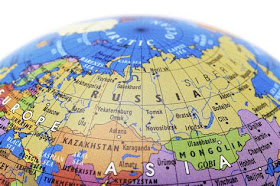Why Regime Change in Russia Might Not Be a Good Idea
Politico OpinionRussia’s great power status also may bolster the likelihood that a post-Putin Russia will remain autocratic. Personalist autocrats often promise to increase their country’s power on the global stage and use anti-Western and anti-liberal appeals to court their political base. Russia can drink far more deeply from this well of nationalist disenchantment than countries with less global reach.
But the prospects for a post-Putin Russia are not all grim. Russia is a personalist autocracy, but it is also a relatively wealthy one, which suggests that its prospects for stability and more open government might be better than expected. One well-regarded study found that it is hard to predict why and when autocratic regimes fall, but when they fall in relatively rich countries, they are more likely to become and stay a democracy.
Other features augur well for a post-Putin future. Russia’s high level of education bodes well for a greater political openness; Russia is better educated than any of the democracies in Latin America, for instance. In addition, Russia’s relatively ethnically homogenous and secular population — about 80 percent of the population is ethnic Russian — suggests that Russia could avoid the ethnic or religious conflicts that have often plagued more diverse countries after the fall of an autocratic government. These structural features are good predictors of democracy and point to a potentially more optimistic outcome for Russia that may counter the legacy of personalist rule.
Beyond these structural features, the circumstances under which Putin leaves power will also go a long way toward determining what comes next. Should Putin be replaced by a coup, the likelihood of a transition to democracy is much lower than if he is replaced by a mass revolt. Svolik finds that following coups, only 1 in 10 personalist autocracies were replaced by democracies. The same figure is 4 in 10 if the ruler is overthrown by a mass revolt. Clearly, anyone rooting for democracy to take root in Russia should be sober about the prospects for a successful pro-democracy uprising. Of course, the prospects for political change are even lower should Putin stay in power.
In addition, who comes after Putin is also relevant. Leader personality and background are more important in foreign policy and during crises than in domestic policy. Putin’s obsession with Ukraine does not seem to be broadly shared among the Russian foreign policy-making elite. To be sure, members of Putin’s war cabinet are very anti-Western, but unlike Putin, they don’t have the same long record of viewing Ukrainians and Russians as the same people. In this case, policy toward Ukraine might be different with a different leader even if the successor comes from the inner circle. A leader who comes from outside the inner circle might offer better prospects for greater political openness in Russia as well.
Biden called for Putin to leave office, but autocratic politics is often less about the personal quirks or personalities of a single individual than about the nature of autocracy itself. A Russia without Putin that remains a personalist autocracy may disappoint those hoping for a Russia that is less corrupt, repressive and at peace with its neighbors. In the end, real political change in Russia will require more than removing Putin.

